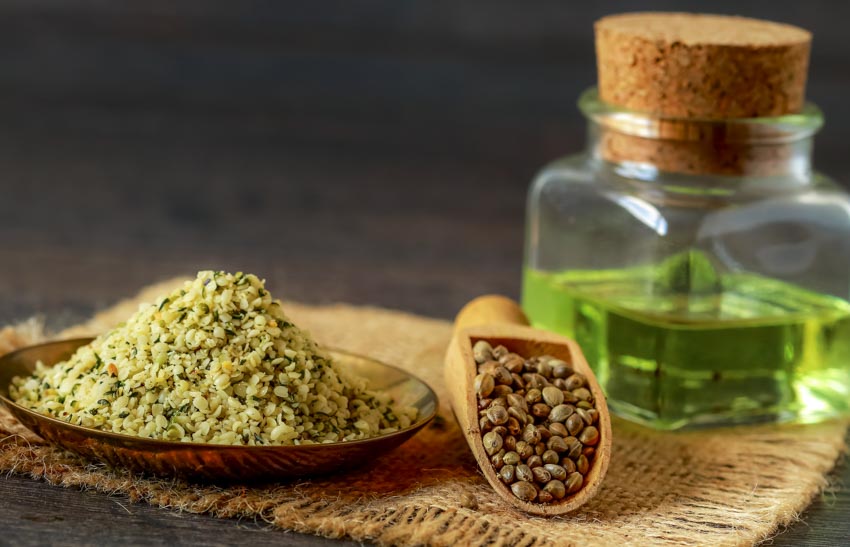Recreational marijuana will be legal in California on January 1, joining states like Alaska, Colorado, Nevada, Oregon, and Washington. The plant is already legal for medical use in many states, and legalization has prompted much research in the field. Studies conducted by doctors from the New York University of Medicine and Brigham and Women’s Hospital in Boston find that marijuana may be effective for seizure control, noting that "marijuana use may be a beneficial adjunctive treatment in some patients with Epilepsy." This augments earlier research on the benefits of marijuana, including findings published in the The National Academies Press (1982).

Permits
Local permits are required for recreational-use dispensaries in California. Oakland, San Diego, Santa Cruz, and Shasta have already prepared permits for immediate implementation, and San Francisco and Los Angeles are expected to join the group in short order. Smoking marijuana will be prohibited in non-smoking zones, and use while driving will remain illegal.
Edibles
Access to safer and controlled forms of ingestion, including oral consumption, is expanded with legalization; this has taken a somewhat interesting culinary direction. Marijuana mints, boutique chocolates, pretzels, candies and more are gaining widespread popularity. An advantage to legalization is control of dosage. Many marijuana treat manufacturers strictly control and label the exact quantity of THC (tetrahydrocannabinol, the chief psychoactive component) in each bite.
Traditional Chinese Medicine
The history of Traditional Chinese Medicine (TCM) documents longstanding use of marijuana. It is the seeds that have been extensively documented. Huo Ma Ren (cannabis seed) is used to moisten the intestines of patients with constipation due to blood or yin deficiency. To relieve constipation, Huo Ma Ren is often combined with Hu Ma Ren (flax seed) and Yu Li Ren (bush cherry pit) in decoctions. Huo Ma Ren is also used for clearing heat and promoting the healing of sores (clearing heat refers to inflammation reduction in TCM). Huo Ma Ren (also known as Ma Zi Ren) is found in the following herbal formulas: Run Chang Wan, Ma Zi Ren Wan, Da Ding Feng Zhu, and Zhi Gan Cao Tang.
Huo Ma Ren is included in herbal formulas for cases of large intestine fluid deficiency. This form of yin deficiency is indicated by constipation with dry, hard stools with dry mouth, bad breath, blurring of vision, or fatigue. Dehydration, blood loss, alcoholism, and fevers may cause fluid deficiency of the large intestine. Common forms of blood loss include heavy menstruation or sufficient blood loss during childbirth to cause amenorrhea. Kidney yin deficiency leading to jin ye deficiency in the elderly is also a common presentation. The TCM treatment principle is to lubricate the large intestine and tonify blood. TCM dietetics indicates that an increase of water, vegetables, fruit, honey, black sesame butter, and oatmeal consumption helps to lubricate the large intestine.
Huo Ma Ren is termed a moist laxative in TCM. This is distinct from stronger laxatives that are termed harsh expellants in that moist laxatives are nourishing and may be used long-term without depleting the constitution of patients. Use of Huo Ma Ren was first documented in the Divine Husbandman’s Classic of the Materia Medica (Shen Nong Ben Cao Jing), written approximately between 300 BCE – 250 CE. Numerous commentaries on the use of Huo Ma Ren in clinical case histories and medical texts have been written since that time. Indeed, the medical use of marijuana has a long track record of safe and efficacious applications, both internally and for topical use.
Scope of Practice
Many states include herbal medicine within a licensed acupuncturist’s scope of practice. This is because the system of Traditional Chinese Medicine is comprised of several medical modalities: herbal medicine, acupuncture, bone medicine, movement arts (e.g., Qi Gong, Taiji), dietetics. Some states prohibit herbal medicine as part of an acupuncture license or education (e.g., Illinois) while other states have stringent educational requirements to ensure consumer safety and exacting standards of implementation.
Notes
1. Mortati, Katherine, Barbara Dworetzky, and Orrin Devinsky. "Marijuana: an effective antiepileptic treatment in partial epilepsy? A case report and review of the literature." Rev Neurol Dis 4, no. 2 (2007): 103-106.
2. Institute of Medicine. 1982. Marijuana and Health. Washington, DC: The National Academies Press. doi.org/10.17226/1894

![Diseases, Symptoms, tcm, [tcmwindow.com]](/uploadFile/adImg/2015/11/11/f5cbfcc0-4df5-4646-9b9a-f316651a0199.jpg)





